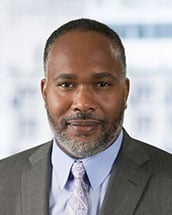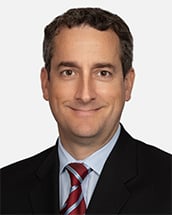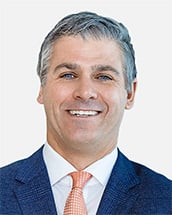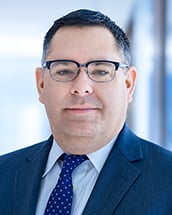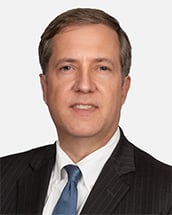An analysis of Attorney General Bondi’s memorandum on the Foreign Corrupt Practices Act (FCPA)
In brief
A recent memorandum from Attorney General Pam Bondi signals a potential shift in the Department of Justice’s (DOJ) FCPA enforcement priorities. According to the memorandum, FCPA enforcement should prioritize foreign bribery linked to Cartels and Transnational Criminal Organizations (TCOs), potentially altering the landscape of white-collar corporate enforcement. While traditional FCPA cases will likely continue, the new directive grants local US Attorneys’ Offices greater latitude in conducting FCPA investigations touching on Cartels and TCOs. This change could lead to an increase in certain types of FCPA investigations and impact the resolution of ongoing cases. As the practical impact of this announcement is not yet known, and any impacts could be minimal or temporary, companies should stay vigilant in managing compliance risk and investigating allegations of wrongdoing appropriately to be in a position to adapt to evolving priorities and navigate the uncertain future of FCPA enforcement effectively. Read the full alert for detailed insights and initial observations on this potentially pivotal development.
In depth
A significant development under the Trump administration may alter the priorities, if not the course, of white-collar corporate enforcement. In a February 5, 2025, agencywide memorandum (“Memorandum“), newly confirmed United States Attorney General Pam Bondi directed the Department of Justice FCPA Unit to concentrate its investigative efforts on “foreign bribery that facilitates the criminal operations of Cartels and Transnational Criminal Organizations” and to shift focus away from investigations lacking such connections. In this note, we use the term “Priority FCPA Investigations” to describe these cases, which, according to the Memorandum, are now the DOJ’s primary focus.
The Memorandum comes on the heels of President Donald Trump’s Executive Order directing the federal government to revise existing national security and counter-narcotics strategies to ensure the “total elimination” of Cartels and TCOs from the United States. While it would be premature to advise companies to definitively react, or to predict the effects of the Memorandum’s mandate in practice, we offer our initial observations.
- Prudence advises waiting to observe how DOJ prosecutors and staff implement the policy directive outlined in the Memorandum. From a policy perspective, the Memorandum reflects priorities and does not exclude the prospect of enforcing existing law. From a legal standpoint, DOJ does not need to use the FCPA to meet the Memorandum’s objectives because individuals and organizations are already prosecuted under federal laws that prohibit narcotics trafficking, human trafficking, and other operations carried out by Cartels and TCOs. Indeed, it would be more cumbersome to attempt to charge these cases as FCPA violations. From a practical standpoint, there is general uncertainty about how much any DOJ policy impacts the realities of white-collar enforcement by front line prosecutors, whose effectiveness is often evaluated by metrics (i.e., how many cases they successfully prosecute). Thus, whether and to what extent the Memorandum is actually followed in practice remains to be seen. Also, the mandate in the Memorandum will be in place for 90 days, after which the DOJ will make a decision about renewing or making permanent the mandate in the Memorandum.
- Although the Memorandum does not suspend or bring an end to DOJ’s enforcement of traditional FCPA cases, it could change which foreign bribery-related matters receive greater attention from DOJ and how they are generally enforced and investigated over the next four years.
- As a general rule, FCPA cases must be coordinated with the DOJ’s Fraud Section in Washington DC, and prosecutions of alleged violations of the FCPA’s antibribery provisions must be led by the Fraud Section’s trial attorneys. This rule has now changed for Priority FCPA Investigations (those involving cartels and TCOs): US Attorneys’ Offices (USAOs) are now free to conduct Priority FCPA Investigations and bring charges with merely 24 hour notice to the DOJ’s FCPA Unit. This could actually result in a localized increase in certain types of FCPA investigations.
- The Memorandum could be interpreted as a way to sew-in FCPA Unit lawyers to Priority FCPA Investigations, while at the same time granting local USAOs greater latitude to conduct traditional FCPA investigations along with Priority FCPA Investigations as well.
- What is less clear is how the directive that the FCPA Unit focus on Priority FCPA Investigations will impact the likelihood of independent detection of bribery conduct by the DOJ, DOJ’s response to (and handling of) voluntary disclosures, and the risk of DOJ enforcement for corruption outside of Priority FCPA Investigations. In addition, the past two decades of FCPA enforcement have centered around multinational corporate misconduct. The type of conduct we foresee underpinning a Priority FCPA Investigation, on the other hand, is less likely to have a clear nexus to conduct regularly engaged in by large multinational companies.
- In addition, it is unclear how the Memorandum will impact pending DOJ FCPA investigations. The average length of an FCPA investigation is reportedly 39 months1. Many of the ongoing cases were commenced years ago during the Biden administration. Any present, substantial decline in FCPA enforcement will likely not be visible until the end of the Trump administration, if not after.
- Moreover, as the statute of limitations for FCPA cases is five years, that may inspire prosecutors to proceed with cases knowing that the new policy may be superseded by a successor policy during the five years.
- It also remains to be seen how the policy reflected in the Memorandum impacts the Securities and Exchange Commission’s (SEC) FCPA enforcement practices (the SEC has FCPA jurisdiction over publicly traded issuers and their officers, directors, employees, and agents). Our intelligence indicates a willingness on the part of the SEC Enforcement Staff to promptly resolve open investigations.
- Although US Attorneys will likely pursue the letter of DOJ priorities, corruption will likely remain a focus of the US Attorneys’ Offices, where these cases can be brought under traditional mail/wire fraud and money laundering theories. Further, the Memorandum acknowledges that “[f]or leaders and managers of Cartels and TCOs, the most serious, readily provable offenses under the [DOJ’s] charging policy will typically include capital crimes, terrorism charges, racketeering charges, Continuing Criminal Enterprise offenses, violations of the Foreign Narcotics Kingpin Designation Act, violations of the International Emergency Economic Powers Act, and machine gun charges. USAOs will likely continue to look for ways to stay the course on white collar cases, while technically complying with the Memorandum. In addition, “garden variety” white collar cases are likely to continue apace due to political pressure to fight against perceived bad actors.
- Even the most ambitious administrations are often unable to achieve their many aspirations2. Similarly, global or national macroeconomic or market events could change priorities. Few would have predicted the corporate crime enforcement boom that began in earnest with the Corporate Fraud Task Force initiated in 2002 under President George W. Bush. This policy emphasis was precipitated by the demise of Enron and Arthur Andersen and a myriad of other corporate scandals that gave rise to the Sarbanes-Oxley Act, which many then credit with giving rise to the current FCPA enforcement wave.
- Pursuing rogue foreign actors in the name of national security does not seem to run contrary to the new Administration’s stated priorities. Noting this, we cast our memories back to the FCPA’s enactment in 1977 and the enforcement uptick in the mid-2000s, both of which can be cast in the narrative of advancing foreign policy objectives.
- More practically, companies will continue to need to investigate and remediate reported allegations of corruption. As noted above, the five-year statute of limitations for FCPA violations extends beyond the four year term of President Trump, and many investigations of foreign bribery started years after the alleged misconduct. If the next administration takes a different path on FCPA enforcement, ongoing or unresolved bribery-related conduct could be investigated and prosecuted. Furthermore, countries outside the US have increased their enforcement of anticorruption laws in recent years (e.g., Germany) and there is little reason to believe they would follow the Trump Administration’s priority shift. In addition, public company auditors will continue to have access to corporate hotline reports of their audit clients and will expect these matters to be investigated and remediated prior to issuing an audit attestation letter. Knock-on issues will exist in the executive officer certification and sub-certification process.
- By necessity, public companies should continue business as usual when it comes to whistleblower hotlines, as these reporting mechanisms are required under Sarbarnes-Oxley Act (SOX) and Dodd-Frank, and they remain good policy/practice from an internal compliance perspective. Regardless of the outcome of the new DOJ policies, there remains the reality that conduct closely related to corruption, such as fraud, kickbacks, money laundering, sanctions violations, among others, will continue to require careful monitoring, investigation, and remediation. Simply put, most crimes are apolitical in nature, and, in recognition of the human condition, will undoubtedly recur regardless of who occupies DOJ leadership.
1 See Stanford Law School Foreign Corrupt Practices Act Clearinghouse, Statistics and Analytics, Key Statistics, https://fcpa.stanford.edu/statistics-keys.html (visited January 15, 2025).
2 For example, the Biden Administration’s KleptoCapture Initiative, disbanded by the Bondi Memorandum, has been criticized for not yielding significant results, but instead achieving forfeitures of assets and violations of sanctions/export controls against individuals not likely to appear in a US federal court. See https://www.rferl.org/a/u-s-attorney-general-pam-bondi-kleptocapture-russian-oligarchs/33306710.html.

